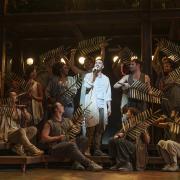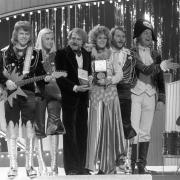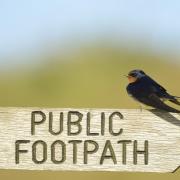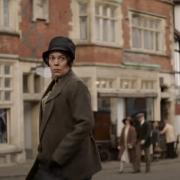Brighton’s music scene attracts audiences from all over the country. Now the city’s small venues and promoters are fighting to survive.

During one weekend in May across Brighton 40 venues have queues pouring out of their doors as 400 new artists and 3,000 music industry delegates descend on the city. But this year, instead of hosting The Great Escape Festival, promoters and venues were launching crowdfunding campaigns.
Last month Brighton promoter Anna Moulson’s crowdfunding campaign raised £8,151 of a £15,000 target towards keeping her business Melting Vinyl afloat – it usually employs seven core freelancers and a pool of 60 other helpers. Since the late 1990s she has brought international and national touring acts to the city, ranging from Fleet Foxes, The Strokes and The White Stripes, to Sinead O’Connor, Bat For Lashes and Laura Marling in venues including Kemp Town’s beautiful St George’s Church. In recent years Melting Vinyl has programmed the annual Lewes Psychedelic Festival, organised parties in art galleries and put on shows in Kent. In response to the lockdown she has given up the lease on her city centre office and started working from home. “After the 2008 recession about 50 per cent of our audience stopped coming out,” she says over a Zoom call. “It was only in the past few years that it felt like we had recovered from that.” In response she had focused the Melting Vinyl brand on nurturing a specific audience. “I carved a niche for myself,” she says. “I went from being a commercial promoter who did a lot of hot artists – who go onto bigger promoters – to put on fewer shows and focus on quality. We have a strong relationship with our audience, so when interesting artists come through we can take a chance.”
As well as putting on shows Melting Vinyl helps train the next generation of promoters, with as many as 30 students a year shadowing what she does over the course of a normal year.
She feels the role of the freelance promoter has been forgotten about in the crisis: “We have done a good job in making ourselves invisible,” she says. “The Association of Independent Music has put together a lot of grants for the industry, but not many that promoters can access. With government grants we tend to fall through the cracks. Most promoters can’t afford to run premises. The Arts Council did offer a grant for sole traders for £2,500 – but it’s not a lot of money when we are losing £5,000 a month.”

A 2018 report by the Brighton and Hove Live Music Partnership found that the live music industry added £112m to the city’s economy. Nationwide the live music industry added £1.1bn gross value added (GVA) to the economy in 2018 according to May’s UK Music submission to the House of Commons DCMS Select Committee Inquiry on the impact of COVID-19. The same report suggests 41 weeks of lost business would see at least £900m wiped off the live sector, which is almost a fifth of the entire music industry’s total annual GVA.
Outside The Great Escape Brighton plays a key role in introducing new music to the wider world. Komedia, in Gardner Street, regularly holds shows by students studying at BIMM Brighton. The multifunctional venue’s business model is built around using the proceeds from its popular Krater Comedy Club nights each weekend to support shows which might not attract such a large audience. The club, which celebrated its 25th anniversary last year, has furloughed many of its staff – up to 60 work at the venue during its busy times. “It takes a lot of people to deliver an event successfully, from programming to marketing to people on the bars, the management team, kitchen staff and security,” says managing director Paul Musselwhite. “We have tried to stay in touch on a human and friendship level with as many people as possible to make sure everyone is okay.”
Komedia is one of eight venues across the city which has launched a crowdfunding appeal as part of the Music Venue Trust’s national #saveourvenues campaign. “We have used the MVT for guidance over the years,” says Paul. “To take part in the national campaign was a no-brainer.” In over a month their appeal raised more than £6,000.
Komedia offers two spaces for bands and performers: its flexible basement main space, with a capacity of up to 400 people, and its smaller studio bar with a top capacity of 150 people. “Bands might play the Prince Albert or The Hope and Ruin first,” says Paul. “We are the step just before they go on to [600-capacity] Concorde 2. We tend to see bands come into the city in one place and return to another. I think everyone recognises that all these venues are important and everyone wants them to survive.” The biggest problem for the venues is that although income streams have stopped, the outgoings haven’t. “We have been cancelling and postponing shows, so some require refunds,” says Paul. “The public has been really supportive. We are working month by month and trying to stay as informed as possible.”

Komedia also makes money on food and drink, which is particularly popular during comedy nights. Paul doesn’t know whether this will be possible once the venue reopens. “Our comedy club is the whole package for a night out – we are focused on big groups coming together to visit the city,” he says. “If a band is only doing one venue on the south coast we will find people will travel to watch it. But now not many people are willing to get on a train.”
One advantage Komedia might have over other venues is that it has tables and chairs to create social distancing. “We have started to have conversations, but because the guidance changes so often we don’t have definitive answers,” says Paul. “When we do have a return date I know we have an excellent team that really wants to come back and be part of the venue again.”
Venues operate on very small margins – so if social distancing means capacities are reduced it could cause disaster for many small venues. “People work in venues because they enjoy the environment,” says Paul. “They are not run to make lots of money. It’s a bit like owning a football team – everyone is doing it because of their passion.”
He admits now is not the time to invest in huge shows. “Hopefully by October things will be completely different,” he says. “It’s a worry just thinking too far ahead for your own mental health. Some bigger venues are already talking about 2021. The longer we are closed, the harder it is to imagine coming back.”
But what of the musicians themselves? In a world of reduced record sales Hove-based Tom Gray, formerly of Mercury Music Prize-winning band Gomez, sees what is happening now as a perfect storm for struggling musicians. He has launched the campaign #BrokenRecord, which he describes as a pressure group rather than a protest movement. At the centre of the campaign is an appeal for record labels to re-examine music streaming deals. The number of songs being streamed online has shot up during lockdown, but payments to artists on music streaming platforms such as YouTube or Spotify are just a tiny fraction of a penny per play.
“As streaming grew in the early 2000s record labels didn’t do anything about it,” says Tom. “Artists worried about ticket sales. And now we are lumbered with this situation where outside of live music there’s a small percentage of artists who are making anything close to a decent living from streaming. For a lot of artists it’s beer money. There are artists who have several hundreds of thousands of followers on multiple platforms, but who make hundreds of pounds rather than thousands.”
Tom is a director of the Performing Rights Society, which collects money from bars, pubs, hairdressers, cinemas, restaurants and small businesses that play music during their opening hours. As most of these are shut during lockdown it’s another income stream eliminated for musicians and songwriters. “There was a survey by the Musicians Union called The Working Musician [in 2012] which found that 56 per cent of respondents earned below £20,000 a year,” says Tom. “Musicians have been getting by with part-time jobs in bars, cafés and restaurants – which have now all closed. Often they are on zero hours contracts – which mean they fall between the gaps.”
Brighton, as a place where young bands often cut their teeth, is in a particularly bad situation. “Some small clubs might not be open in a year’s time,” says Tom, referring to problems with social distancing in small spaces. “The government is not doing anything about it.” He compares it to his own experience visiting clubs in Europe while on tour with Gomez. “EU venues would pour money into small venues,” says Tom, who now writes soundtracks and scores, including most recently for BBC comedy drama In My Skin. “We would go to a gig in Holland, Belgium, France or Germany and find a nice clean room, with a good working PA, which had all been achieved through government funding. British creative industries are our biggest export – and everyone knows it.”
So what of the future for Brighton’s music industry? Anna has been exploring a new format of live show – the live stream. On 22 May she organised a live-streamed show by artist Roxanne de Bastion. “We got good feedback off people watching it,” she says. “It was nice to feel close to the audience and the artist.” She doesn’t think it compares to putting on a physical show, with the feeling of being in the audience and experiencing something in front of you. “Streaming does give an element of that, but not completely,” she says. “I have been looking into the costs of getting a good camera person, lights and sound for St George’s Church – it would be good if we can’t get enough people in the room. Most shows need to have a three-quarters capacity to cover costs.”
Find out more at:
Donate at crowdfunder.co.uk/saveourvenues---komedia-brighton Look out for #BrokenRecord on social media



























